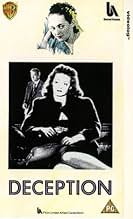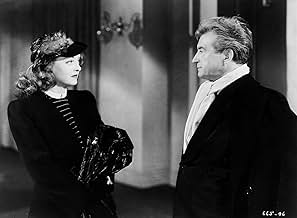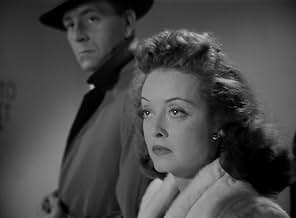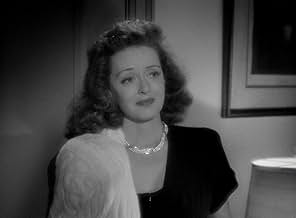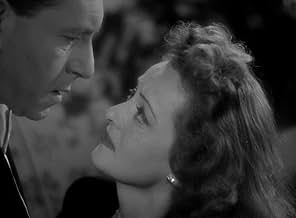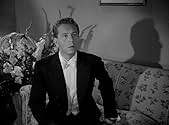IMDb-BEWERTUNG
7,1/10
4492
IHRE BEWERTUNG
Füge eine Handlung in deiner Sprache hinzuAfter marrying her long-lost love, a musician finds the relationship threatened by a wealthy composer who is besotted with her.After marrying her long-lost love, a musician finds the relationship threatened by a wealthy composer who is besotted with her.After marrying her long-lost love, a musician finds the relationship threatened by a wealthy composer who is besotted with her.
- Regie
- Drehbuch
- Hauptbesetzung
- Auszeichnungen
- 4 wins total
John Alban
- Concertgoer
- (Nicht genannt)
Russell Arms
- Music Student
- (Nicht genannt)
Lois Austin
- Norma - Wedding Guest
- (Nicht genannt)
Patricia Barry
- Music Student
- (Nicht genannt)
Brandon Beach
- Concertgoer
- (Nicht genannt)
Lulu Mae Bohrman
- Restaurant Diner
- (Nicht genannt)
Paul Bradley
- Concertgoer
- (Nicht genannt)
James Carlisle
- Restaurant Diner
- (Nicht genannt)
Gertrude Carr
- Wedding Guest
- (Nicht genannt)
James Conaty
- Well-Wisher at Concert
- (Nicht genannt)
Marcelle Corday
- Hat Check Woman
- (Nicht genannt)
Gino Corrado
- Waiter
- (Nicht genannt)
Suzi Crandall
- Music Student
- (Nicht genannt)
Empfohlene Bewertungen
One of the few actors of Bette Davis' time who could match her screen intensity was Claude Rains. Paul Henreid is paired with Davis as her true love for another convincing romance. But, the script-stealing scene is between Davis and Rains. Matched penultimately perfect for the picture, Davis and Rains match each other's most intense acting skills during a major bedroom blow-out between them. I live to watch that scene over and again for its acting mastery.
Since Deception is about three classical music artists, the classical music score makes Deception's choice script musically enhanced to a classy degree. I love how Rains takes "the 4th Warner Brother's" acting intensity and levels it with his own. Even Bogie couldn't do that when staged with Davis! Don't miss this tightly wound triangulation with Henreid underplaying himself as his role calls for.
Since Deception is about three classical music artists, the classical music score makes Deception's choice script musically enhanced to a classy degree. I love how Rains takes "the 4th Warner Brother's" acting intensity and levels it with his own. Even Bogie couldn't do that when staged with Davis! Don't miss this tightly wound triangulation with Henreid underplaying himself as his role calls for.
I'll dispense with the details of the plot and move directly to Mr. Rains' performance as Hollenius the composer in this musico-melodrama.
This is his show although Davis and Henreid attempt to hold their own in this film.
His flair for manipulation and deception, hence the title, dominates the film.
He does a great job of it, driving everyone crazy with his shenanigans and jealousy.
The cinematography is well done and the story's setting in the world of post-WW II classical/modern music is interesting.
I noted that early on, for instance, as Henreid finished a performance, audience members asked him who his favorite living composer was..."Sibelius...or Shostakovich...?" No mention of Aaron Copland or the many other composers alive at the time.
Hollenius' work as a composer was a curious mix of tonal, traditional and slightly atonal influences, attempting to display "modern" music but watered down to keep the audience and us interested.
The mimicking of the piano and cello performances by all three actors was fairly well done.
I found it quite interesting too that both Davis and Rains were not "starving artists" like Henreid. Opulent apartments and lifestyles for piano teachers and composers were not common, but these two were well-off in an even garish sense.
This was not the reality of the time in the music world.
I'd recommend this film if you're a Rains or Davis fan. Henreid was not used for his full potential.
This is his show although Davis and Henreid attempt to hold their own in this film.
His flair for manipulation and deception, hence the title, dominates the film.
He does a great job of it, driving everyone crazy with his shenanigans and jealousy.
The cinematography is well done and the story's setting in the world of post-WW II classical/modern music is interesting.
I noted that early on, for instance, as Henreid finished a performance, audience members asked him who his favorite living composer was..."Sibelius...or Shostakovich...?" No mention of Aaron Copland or the many other composers alive at the time.
Hollenius' work as a composer was a curious mix of tonal, traditional and slightly atonal influences, attempting to display "modern" music but watered down to keep the audience and us interested.
The mimicking of the piano and cello performances by all three actors was fairly well done.
I found it quite interesting too that both Davis and Rains were not "starving artists" like Henreid. Opulent apartments and lifestyles for piano teachers and composers were not common, but these two were well-off in an even garish sense.
This was not the reality of the time in the music world.
I'd recommend this film if you're a Rains or Davis fan. Henreid was not used for his full potential.
Deception (1946)
A marvelous chamber piece, in a way, involving orchestral music. The cast begins with two principals, played with usual intensity by Bette Davis and with usual restraint by Paul Henreid. This broods a bit and suggests trouble, and then comes the third player, who outdoes them both, in the form of Claude Rains. The rest of the movie is an interplay between the three, a push and pull and game of dodging and, of course, deception.
So how to judge this kind of tightly woven enterprise? It feels as though William Wyler could have directed it, so polished and rich it all is. But this is a Warner Brothers drama, so there is another kind of layer of dark danger, and of a noir inspired lighting and camera-work. This visual aspect, in a way, is the real star of the film, which says a lot, considering the high level of acting involved.
In all it's purely an entertainment, but at the highest level. The backdrop of classic music and classical musicians hasn't worn well over the years, but I grew up with this kind of scene and it brought back a lot of those vibes. A terrific movie within its own genre.
A marvelous chamber piece, in a way, involving orchestral music. The cast begins with two principals, played with usual intensity by Bette Davis and with usual restraint by Paul Henreid. This broods a bit and suggests trouble, and then comes the third player, who outdoes them both, in the form of Claude Rains. The rest of the movie is an interplay between the three, a push and pull and game of dodging and, of course, deception.
So how to judge this kind of tightly woven enterprise? It feels as though William Wyler could have directed it, so polished and rich it all is. But this is a Warner Brothers drama, so there is another kind of layer of dark danger, and of a noir inspired lighting and camera-work. This visual aspect, in a way, is the real star of the film, which says a lot, considering the high level of acting involved.
In all it's purely an entertainment, but at the highest level. The backdrop of classic music and classical musicians hasn't worn well over the years, but I grew up with this kind of scene and it brought back a lot of those vibes. A terrific movie within its own genre.
I have just finished reading all of the comments here and now let me add my two cents worth. This is my all time favorite Davis opus and it is certainly not because of the high quality of her performance. See Davis at her best in The Letter. What Deception is is a high powered duel between flamboyant personalities (Davis and Rains) wiping their costar (Henreid) right off the screen. The restaurant scene deserves all the mention it got here previously, but how about mink coated Bette confronting Rains in his bed reading Dick Tracy? The screen crackles with vitriol. This is over the top screen acting at it's most enjoyable.If you've never seen this, take the opportunity and enjoy it for what it is: good old fashioned Hollywood entertainment.
On a recent Turner Classic Movies broadcast, I finally caught up with all of this one, having seen only snippets of it before. Everybody involved was obviously given free rein, from the lead actors all the way through to every behind-the-scenes artisan, the best that Warner Brothers could muster at the time. Claude Rains and Bette Davis spar in magnificent style, with Rains, stroking the fur of his pet Siamese cat, winning by default, since he was given a role which is so over-the-top that, in the hands of a lesser actor, it would have verged on outrageous camp. (Check out the rococo New York brownstone mansion in which he's ensconced, more magnificent than anything a lesser studio could provide for a monarch in a story involving royalty!)
Poor Paul Henreid has a particularly thankless role to play, swinging like an erratic pendulum between jealous tantrums and thoroughly deceived naïveté, but his simulations of the movements of a top-flight cello musician are convincing enough to allow all to be forgiven.
Erich Wolfgang Korngold's music is probably the film's chief asset and it probably sounded superb over the monophonic sound systems when this film was released, since Warners' sound technicians were the best in Hollywood back then. (Unfortunately the soundtrack during the telecast I heard was very wobbly - a real disappointment. Wonder what the problem was, since this certainly isn't the case with many films dating even further into the past.)
While it may not be a delicacy fit for a cinematic gourmet, it's more than passably entertaining for its nearly two-hours running time.
Poor Paul Henreid has a particularly thankless role to play, swinging like an erratic pendulum between jealous tantrums and thoroughly deceived naïveté, but his simulations of the movements of a top-flight cello musician are convincing enough to allow all to be forgiven.
Erich Wolfgang Korngold's music is probably the film's chief asset and it probably sounded superb over the monophonic sound systems when this film was released, since Warners' sound technicians were the best in Hollywood back then. (Unfortunately the soundtrack during the telecast I heard was very wobbly - a real disappointment. Wonder what the problem was, since this certainly isn't the case with many films dating even further into the past.)
While it may not be a delicacy fit for a cinematic gourmet, it's more than passably entertaining for its nearly two-hours running time.
Wusstest du schon
- WissenswertesPaul Henreid could not play the cello. While he was able to fake it in the long shots, to achieve the illusion in closeup, he wore a special jacket with no sleeves and holes for two real cellists to insert their arms - one to bow, and one to accurately finger the music - while seated behind him, out of shot.
- PatzerWhile Christine, alone in her studio, is talking to Alexander Hollenius on the telephone, the highly visible shadow of a crew member is moving back and forth across the piano behind her.
- Zitate
Alexander Hollenius: [snatches his bleeding hand away from Christine] Like all women - white as a sheet at the sight of a couple of scratches... calm and smiling like a hospital nurse in the presence of a mortal wound... Good night!
- VerbindungenEdited into Tote tragen keine Karos (1982)
- SoundtracksHollenius' Cello Concerto
Music by Erich Wolfgang Korngold
Performed by Paul Henreid (dubbed by Eleanor Slatkin)
Top-Auswahl
Melde dich zum Bewerten an und greife auf die Watchlist für personalisierte Empfehlungen zu.
- How long is Deception?Powered by Alexa
Details
- Laufzeit
- 1 Std. 55 Min.(115 min)
- Farbe
- Seitenverhältnis
- 1.37 : 1
Zu dieser Seite beitragen
Bearbeitung vorschlagen oder fehlenden Inhalt hinzufügen




